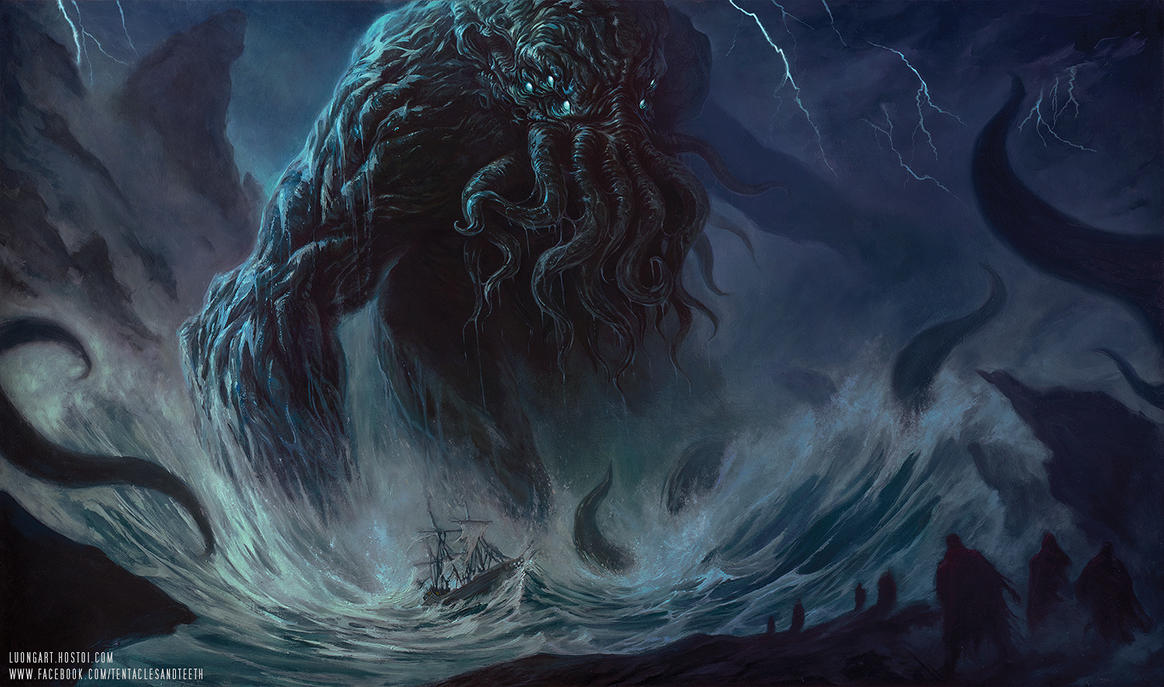
For decades now, references to the Cthulhu mythos have been slipping into everything from Batman to Fallout to Hell-Boy to the music of John Zorn, Metallica, dozens of metal bands, Terry Pratchett, Neil Gaiman, Ben 10, Dr. Who, Earthworm Jim (that was a great cartoon!), the popular medical show "House", Scooby Doo, etc. etc. etc. etc. (I left out some of the most obvious references) .
So when does a piece of fiction become something bigger? When does it become myth? I'd guess that there are plenty of teenagers today who don't know about the origins of Cthulhu in the stories of H. P. Lovecraft. I'd guess that there are plenty of people who think that Chaosium has turned some ancient Pheonician/Babylonian/Hittite/who-knows-what myth into a game. I'd guess that there are plenty of people who think the Necronomicon has been around for centuries, that amongst the dozen or so versions of the book available on Amazon, one might be the real thing.
My question is, has Lovecraft's Cthulhu mythos become a real, modern myth? Have people repeated the stories, images, phrases ("Yog-Sothoth lives!) and tropes so much that their literary origins are becoming blurred? Are they becoming, in a sense, a set of stories so universal that we use them to make sense of our world (or the darker parts of it, at least)?

